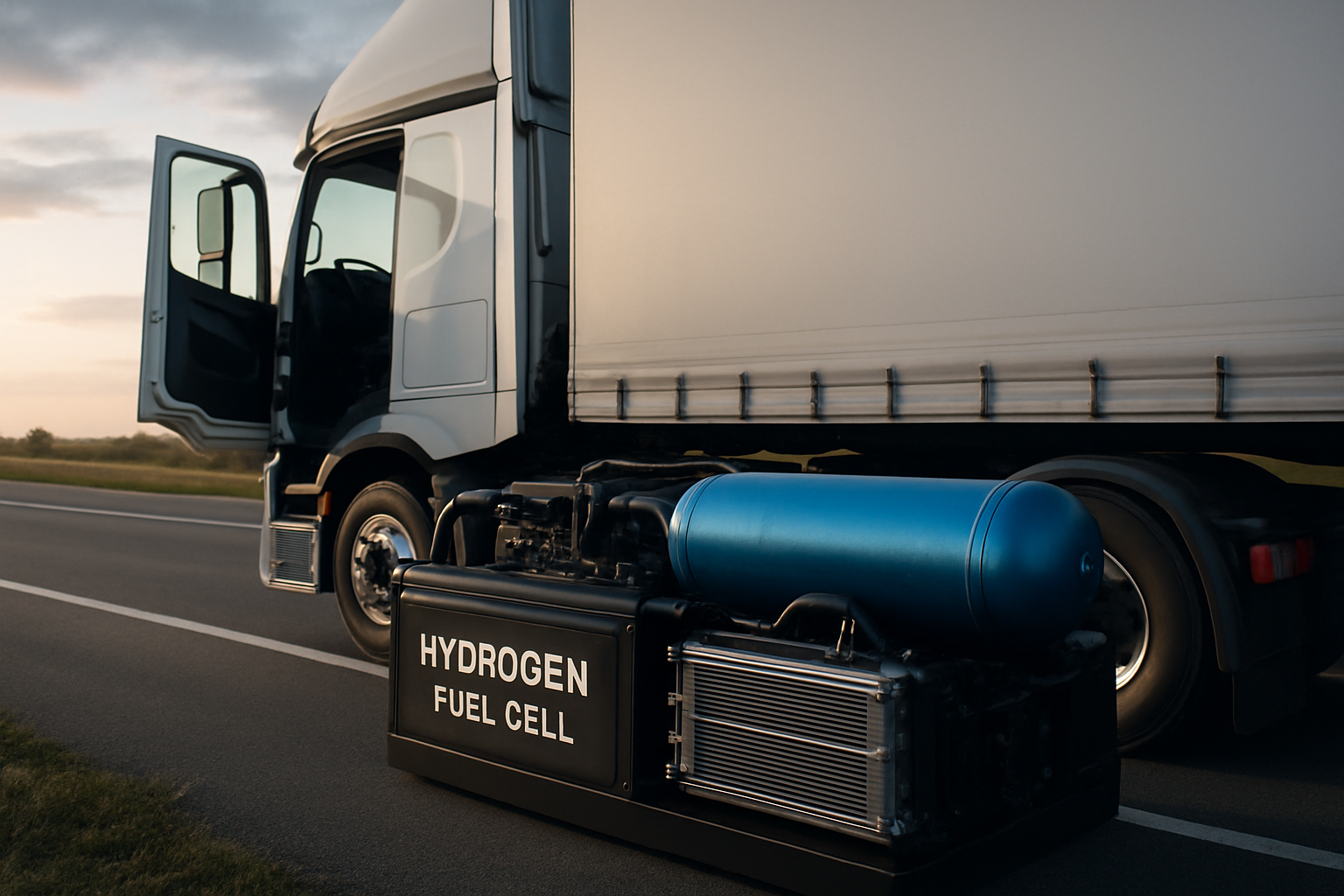Hydrogen-Electric Trucks: Revolutionizing Long-Haul Transport
In the ever-evolving landscape of automotive technology, a groundbreaking innovation is emerging that could transform the trucking industry: hydrogen-electric powertrains. This fusion of hydrogen fuel cells and electric motors presents a promising solution to the challenges of long-haul transport, offering extended range, rapid refueling, and zero emissions. As the world grapples with climate change and the need for sustainable transportation, hydrogen-electric trucks are poised to play a pivotal role in reshaping the future of freight movement.

The Genesis of Hydrogen-Electric Trucking
The concept of hydrogen-powered vehicles has been around for decades, but recent advancements in fuel cell technology have made hydrogen-electric trucks a viable alternative to traditional diesel-powered rigs. The journey began with small-scale prototypes and gradually evolved into full-sized commercial trucks capable of hauling heavy loads across long distances. Early pioneers in this field faced numerous challenges, from the high cost of fuel cells to the lack of hydrogen infrastructure. However, persistent research and development efforts have led to significant improvements in efficiency, durability, and cost-effectiveness.
How Hydrogen-Electric Powertrains Work
At the heart of hydrogen-electric trucks lies a sophisticated powertrain that combines the best of hydrogen fuel cell technology with electric propulsion. The process begins with hydrogen stored in high-pressure tanks onboard the vehicle. This hydrogen is fed into a fuel cell stack, where it undergoes a chemical reaction with oxygen from the air. This reaction produces electricity, which powers the electric motors that drive the truck’s wheels. The only byproduct of this process is water vapor, making hydrogen-electric trucks a truly zero-emission solution for heavy-duty transport.
Advantages Over Traditional Diesel Trucks
Hydrogen-electric trucks offer several key advantages over their diesel counterparts. Firstly, they provide significantly reduced emissions, contributing to improved air quality and reduced greenhouse gas emissions. The refueling process is also much faster than charging battery-electric vehicles, taking only minutes to fill up the hydrogen tanks. This quick turnaround time is crucial for long-haul operations where minimizing downtime is essential. Additionally, hydrogen-electric trucks can achieve ranges comparable to diesel trucks, making them suitable for long-distance routes without compromising payload capacity.
Challenges and Infrastructure Development
Despite the promising potential of hydrogen-electric trucks, several challenges must be addressed for widespread adoption. One of the primary hurdles is the development of a comprehensive hydrogen refueling infrastructure. Unlike diesel stations, hydrogen fueling stations are still relatively scarce, limiting the operational range of these vehicles. However, governments and private companies are investing heavily in expanding the hydrogen network, with plans for strategic corridor development to support long-haul routes. Another challenge is the current high cost of fuel cells and hydrogen production, although economies of scale are expected to drive down prices as adoption increases.
Real-World Applications and Pilot Programs
Several major truck manufacturers and logistics companies have launched pilot programs to test hydrogen-electric trucks in real-world conditions. These initiatives aim to gather data on performance, reliability, and cost-effectiveness across various operating environments. For instance, some programs focus on port operations, where short-haul trips with heavy loads are common. Others are testing long-haul routes between major cities, evaluating the trucks’ ability to maintain consistent performance over extended distances. These pilot programs are crucial for refining the technology and building confidence among potential adopters.
Environmental Impact and Sustainability
The environmental benefits of hydrogen-electric trucks extend beyond their zero-emission operation. When produced using renewable energy sources such as wind or solar power, hydrogen becomes a truly clean fuel from well to wheel. This green hydrogen production aligns with global efforts to decarbonize the transportation sector, which is responsible for a significant portion of global CO2 emissions. By transitioning to hydrogen-electric trucks, the logistics industry could dramatically reduce its carbon footprint while maintaining the efficiency and reliability required for modern supply chains.
Economic Implications for the Trucking Industry
The adoption of hydrogen-electric trucks has far-reaching economic implications for the trucking industry. While the initial investment in these vehicles is higher than traditional diesel trucks, the long-term operational costs could be significantly lower. Factors such as reduced fuel costs, lower maintenance requirements due to fewer moving parts, and potential government incentives for clean transportation all contribute to a compelling economic case. Furthermore, as emission regulations become stricter in many regions, hydrogen-electric trucks offer a future-proof solution that can help companies avoid costly penalties and restrictions.
The Role of Policy and Regulation
Government policies and regulations play a crucial role in accelerating the adoption of hydrogen-electric trucks. Many countries are implementing stricter emission standards and offering incentives for clean vehicle technologies. These policies create a favorable environment for investment in hydrogen infrastructure and vehicle development. Additionally, regulations around carbon pricing and low-emission zones in urban areas are making hydrogen-electric trucks an increasingly attractive option for fleet operators looking to future-proof their operations.
Future Outlook and Industry Predictions
As technology continues to advance and costs decrease, industry experts predict a significant uptake in hydrogen-electric truck adoption over the next decade. Many major truck manufacturers are committing to hydrogen fuel cell technology as part of their long-term strategy, signaling a shift in the industry. The convergence of improved technology, expanding infrastructure, and supportive policies is expected to create a tipping point for widespread adoption. This transition could revolutionize not only the trucking industry but also contribute significantly to global efforts in combating climate change and air pollution.






